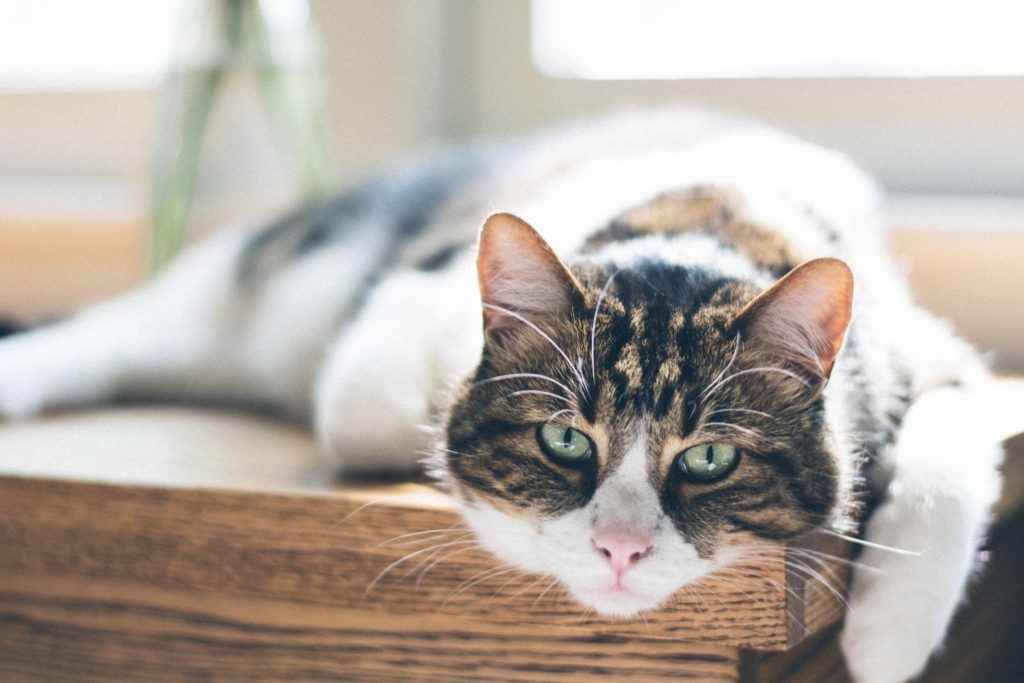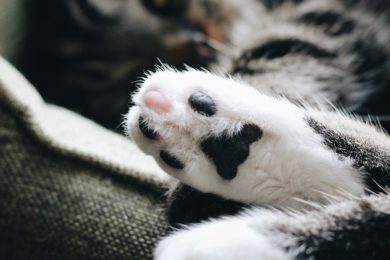 Whether your kitten has aged along with you for years or you’ve adopted a senior into your home, there is no doubt that caring for older cats presents a few challenges. How can we make sure our beloved pets are around for as long as possible – and healthier and happier to boot?
Whether your kitten has aged along with you for years or you’ve adopted a senior into your home, there is no doubt that caring for older cats presents a few challenges. How can we make sure our beloved pets are around for as long as possible – and healthier and happier to boot?
7 is the New 6
Cats are generally considered to be “old” when they reach 7 years of age. But something interesting is happening. Cats are living longer. In 2002, the average lifespan was 11 years. Today, it’s over 12. This is great news for pet owners, and there’s even better news: we can not only prolong their years but help them achieve a great quality of life. How?
Focusing on Nutritional Needs
If you have a senior dog, you know you need to feed her less. The old metabolism isn’t what it used to be. But the same is not true for cats. Usually, their metabolic rate stays steady and they require the same amount of food.
One caveat though: older cats may not digest and absorb fat as well as they used to. Adding more fat or fat that is easier to digest to their diet is important they can maintain their level of energy.
While dry food can help cats keep their teeth clean, try a variety of wet foods. Why?
They are higher in fat and protein than dry food, and they typically have less carbohydrates.
They provide hydration. Many cats do not drink enough water to properly hydrate their bodies; the wet food can compensate for this.
They come in a variety of flavours. While this provides different nutrients, your cat just really enjoys sampling different menu items.
To prevent obesity, feed your older cat about 50 calories per every kilogram of weight every day. You may have to adjust this up or down depending on her activity levels and general health.
Care for the Skin, Coat, and Nails
As we age, we experience changes to our skin, hair, and nails. It’s the same for cats. What happens?
Skin becomes thinner. Your cat may experience dry skin, and injured skin usually takes longer to heal in older cats. To help your cat maintain skin health, brush her regularly to stimulate the production of natural oils, and ask your vet about a fatty acid supplement.
Her coat may become thinner and less lustrous – and she may start to sprout grey hair. At least cats don’t care about touching up their roots. Keep her coat healthy by grooming her regularly (this will also help prevent hairballs), and again, ask your vet about a supplement. If your cat’s coat changes drastically, see your vet. She may have a health condition or a nutritional deficiency that you can correct with a change in food.
Brittle nails. If your cat doesn’t hit the scratching post like she used to, make sure to clip you’re her nails carefully so they do not break and cause pain.
Turn Up the Heat!
If your cat could bundle up in a sweater, she would! As cats get older, they are less able to regulate their body temperatures. They are much more susceptible to cold. To help her stay cozy, move her bed closer to a heat vent or consider a heated bed.
Paying Attention to Mobility
Just like humans, cats experience more aches and pains, creaks and cracks as they age. Some may develop arthritis, which can cause slight stiffness or debilitating pain. If you notice your cat has difficult jumping, going down the stairs, or just doesn’t engage in her usual level of activity, see your vet. He or she may prescribe a treatment to support healthy joints, such as chondroitin and glucosamine. (Don’t give your cat any medications – especially anti-inflammatories – without speaking to your vet).
If she experiences joint pain, make sure her bedding, food and water dishes and litter box are fully accessible to her.
To stave off joint problems and muscle deterioration, make sure your cat gets plenty of exercise. Try a cat tower, invest in prey-oriented toys (birds, mice, etc.), play hide and seek with treats, and provide objects for her to explore (nothing like an empty cardboard box to enthrall a cat).
Cats usually have a fairly small attention span, so try to get in a few minutes of play several times a day. She’ll love all the attention too!
Behavioural Changes
Many people consider getting a new kitten to provide a playmate for their older cats. Well… before you do, consider that senior cats are much less able to handle stress. This can make them more aggressive, frightened, and vocal. Try to minimize stress as much as possible, whether that means maintaining consistency (and not adding a new pet to the home) or providing her with a quiet, private place to rest.
If you do want to add to your furry family, adopt a kitten when your senior is still able to move, has no or very little pain, and has intact hearing and vision. This way, she can escape from the new fur-covered bundle of energy.
Your cat is also likely to need more attention as she ages. Take the time to sit and pet her, snuggle, and talk to her. This will go a long way in making her senior years happy, comfortable, and rewarding – for both of you!


